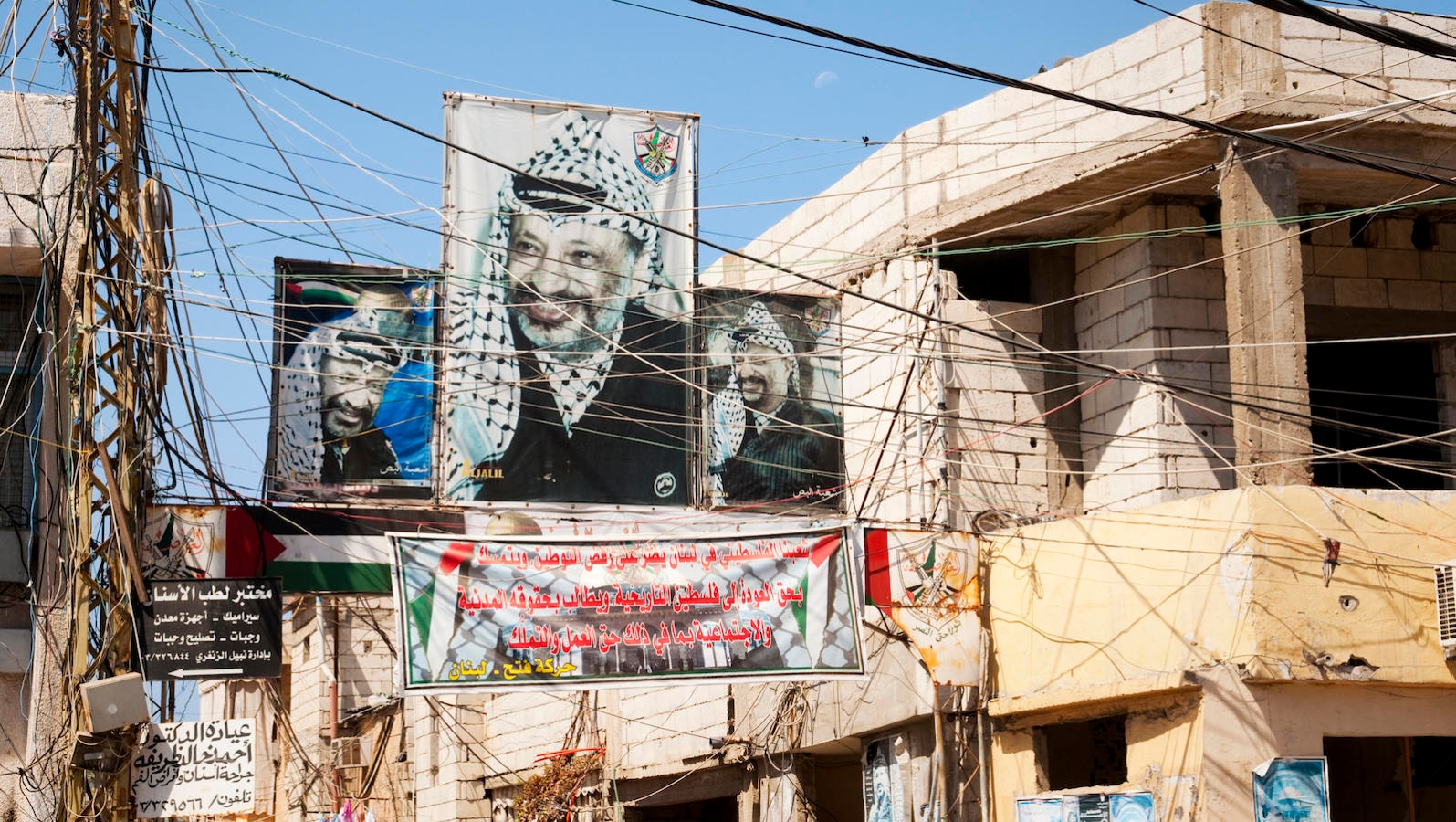Founded in 1964 as an umbrella organization of Palestinian military groups, the Palestine Liberation Organization (PLO) stated as its founding goal the destruction of Israel and its replacement with a “secular, democratic state.” It pursued this aim first by launching guerrilla attacks against Israel from bases in Jordan. These attacks intensified after the 1967 Six-Day War brought the West Bank and the Gaza Strip under Israeli control. Yasser Arafat, co-founder and head of Al-Fatah, the PLO’s largest and best-funded constituent group, became Chairman of the PLO in 1968.
Israeli military responses to PLO attacks and the gradual development of a PLO-run “state within a state” in Jordan, whose population included many Palestinian refugees from the Arab-Israeli wars of 1948 and 1967, brought the organization into direct confrontation with the Jordanian government. In a civil war that erupted in what the Palestinians called “black September” of 1970, forces loyal to Jordan’s King Hussein expelled armed PLO elements into Lebanon.
Increasing Terrorism
During the 1970s, the PLO became virtually a synonym for terrorism–a strategy that, ironically, increasingly won the Palestinian cause sympathy in the international arena. The PLO invented airplane hijackings and carried out many of them, and its constituent groups were responsible for a large number of other terrorist attacks, including the assassination of Jordan’s prime minister in Cairo in 1971 and the murder of 11 Israeli athletes at the Olympic Games in Munich in 1972, both enacted by an extremist offshoot of Al-Fatah called Black September.
In October, 1974, a year after the Yom Kippur War, the heads of the Arab states, meeting in Rabat, Morocco, formally affirmed the “right of the Palestinian people to return to its homeland” and named the PLO as the Palestinians’ “sole legitimate representative.”
Two weeks later, Yasser Arafat, a revolver strapped to his hip in a dramatic breach of UN decorum, addressed the UN General Assembly with the words, “I have come bearing an olive branch and a freedom fighter’s gun. Do not let the olive branch fall from my hand.”
In response, the UN affirmed the “inalienable rights” of Palestinians to national independence and the following year awarded the PLO “observer” status in the General Assembly and many UN organizations. In 1976, the PLO was admitted to full membership in the Arab League.
Israeli Response
Despite the PLO’s success in bringing the Palestinian issue to world attention, Israel refused to deal with it, preferring, with limited success, to try to develop an independent Palestinian leadership in the West Bank and Gaza. A 1980 Israeli law made it a crime for Israeli citizens to have contact with the PLO. American policy toward the PLO, though it wavered somewhat, generally insisted that the PLO renounce violence to achieve US recognition.
In Lebanon, into which Jordan had expelled the PLO fighters, the organization again used its host country’s Palestinian refugee population to establish a quasi-independent entity (“Fatahland,” in Israeli parlance) as a base for launching attacks against Israel. These included bloody incursions into the northern Israeli towns of Ma’alot and Kiryat Shemonah in which many civilians were killed.
PLO violence prompted Israel’s June, 1982, invasion of Lebanon, which drove the PLO out of the country, with forces loyal to Arafat establishing a new organizational headquarters in Tunisia.
The First Intifada
A 1987 general uprising against Israeli rule in the West Bank and the Gaza Strip, known as the first intifada (literally, “shaking”), put the Palestinian question back on Israel’s and the world’s agenda and incidentally gave the Palestinians another potent symbol–rock-throwing youths defying well-armed Israeli soldiers and tanks. Although an indigenous leadership in the “occupied territories” guided the uprising, it deferred to Yasser Arafat and the PLO as its political representative.
During this uprising, Jordan officially renounced its claims to East Jerusalem and the West Bank, paving the way for the PLO to announce the establishment of a “state of Palestine,” which claimed Jerusalem as its capital without defining its borders. With this step, the PLO became a kind of government-in-exile that was soon recognized by some 70 countries.
The following year, the Palestine National Council, the PLO’s governing body, named Arafat president of the new “state.” During this period, the PLO also formally accepted UN resolutions 242 and 338 (the basis of the “land for peace” formula), thereby implicitly acknowledging Israel’s right to exist. That set the stage for the peace process that would result in the Oslo Accords, which ultimately failed to bring a lasting peace.
Yom Kippur
Pronounced: yohm KIPP-er, also yohm kee-PORE, Origin: Hebrew, The Day of Atonement, the holiest day on the Jewish calendar and, with Rosh Hashanah, one of the High Holidays.



